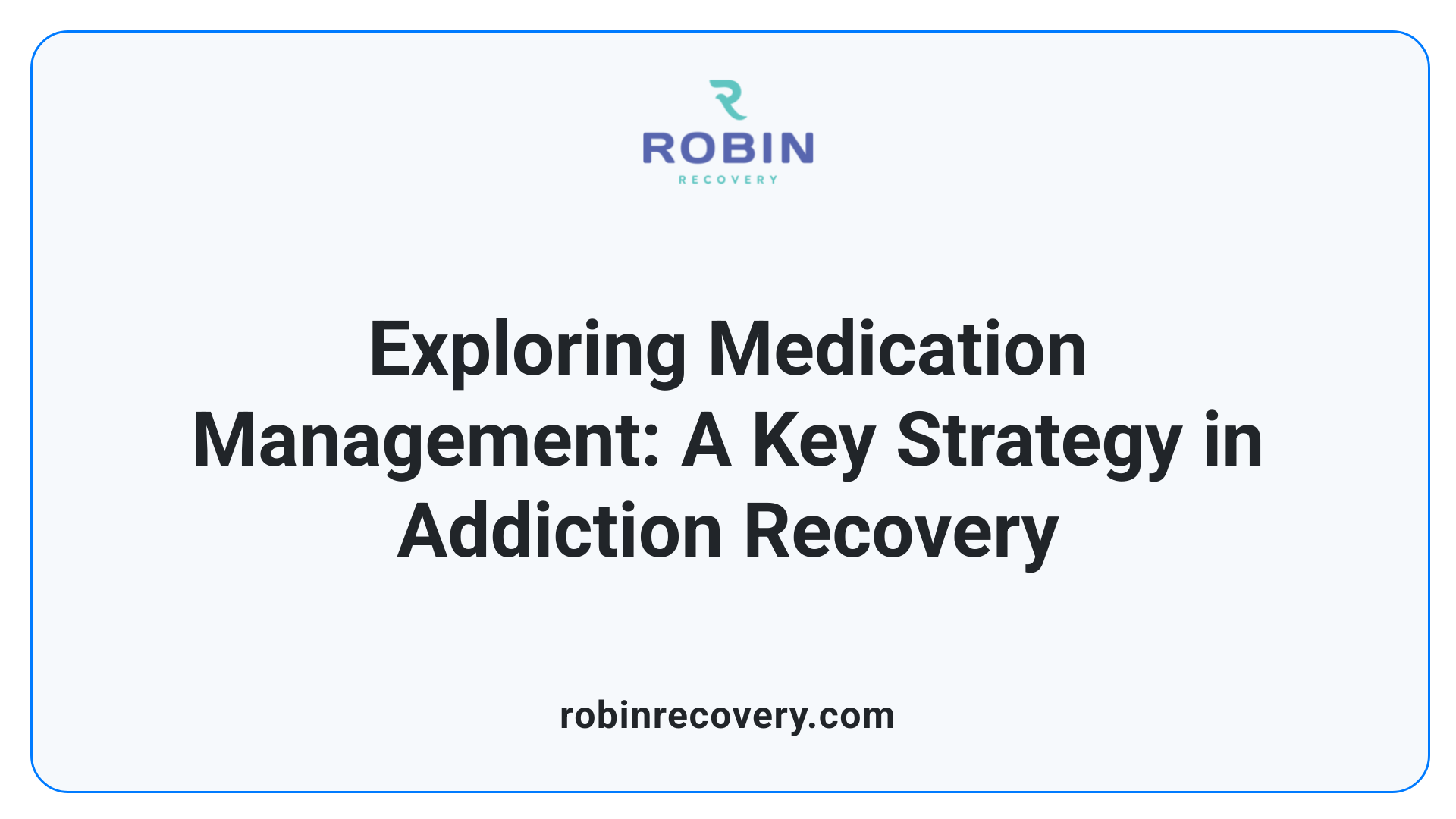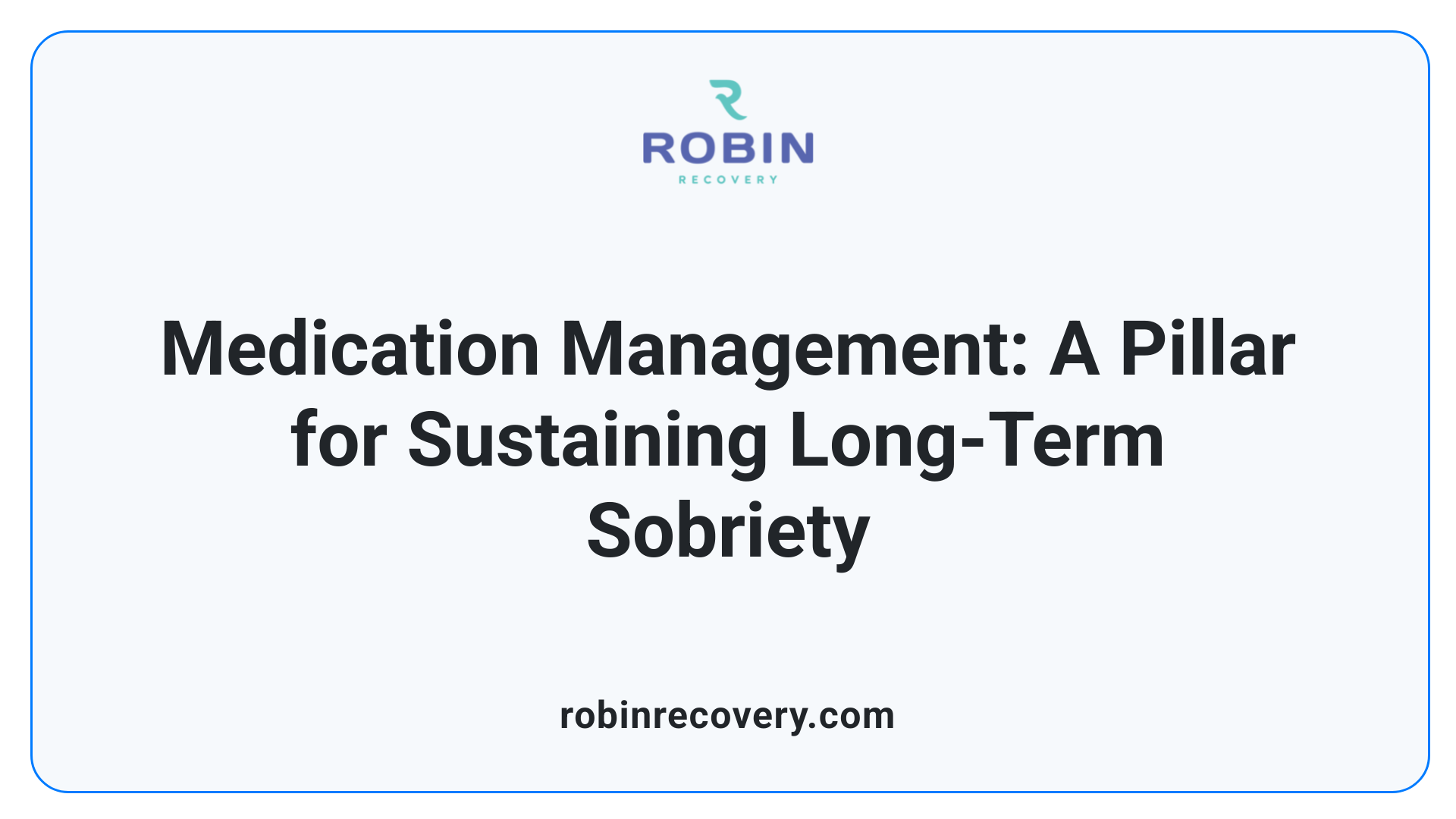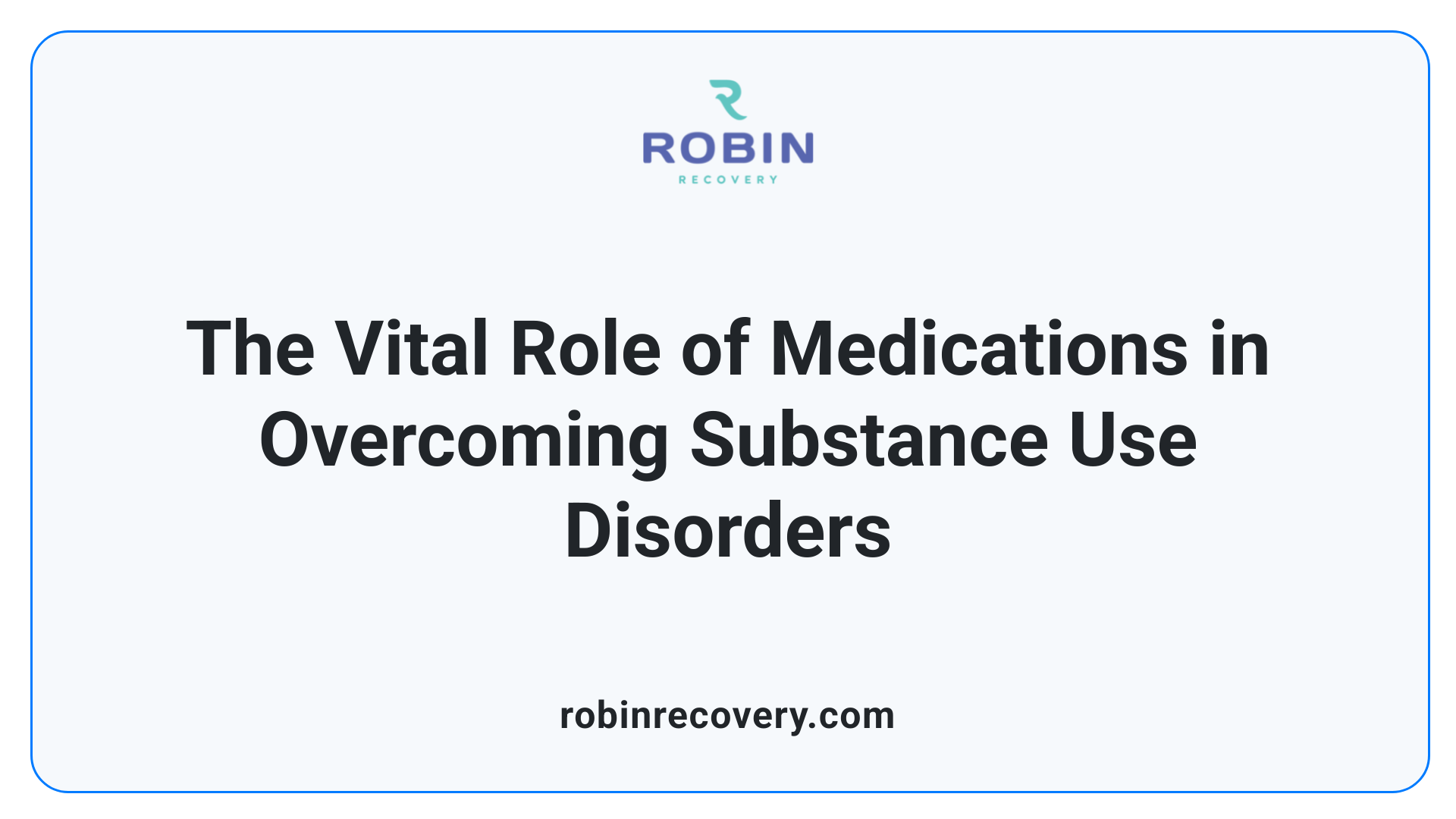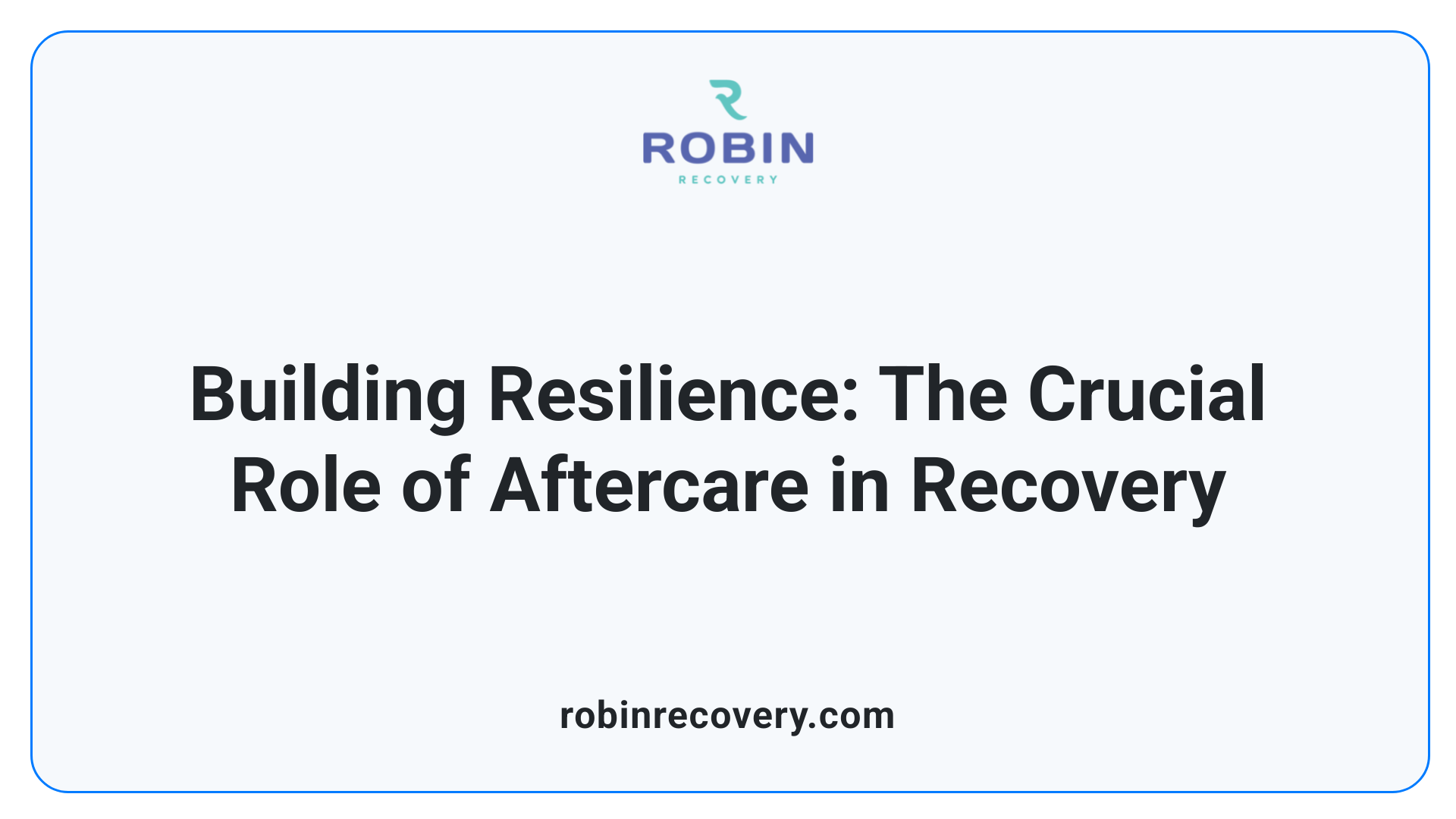How Medication Management Supports Long-Term Sobriety

Introduction to Medication Management in Sobriety
Achieving and maintaining long-term sobriety from substance use disorders (SUDs) can be an arduous journey that requires a multitude of strategies. One of the pivotal elements in this process is medication management—a structured approach to the use of prescribed medications that, when combined with therapy and psychosocial support, can significantly enhance recovery outcomes. This article explores how medication management contributes to sustained sobriety, detailing the mechanisms through which it operates, its synergy with therapeutic interventions, and the critical role it plays in holistic addiction treatment plans.
Understanding Medication Management

How does medication management work?
Medication management is a comprehensive, structured approach aimed at ensuring the effective and safe use of medications, especially crucial for those in recovery from substance use disorders (SUDs).
The process begins with an initial review during which prescribed medications are evaluated against the patient's specific conditions and treatment goals. This assessment helps tailor medication choices to maximize efficacy and minimize risks.
Ongoing monitoring is a critical component of medication management. This involves tracking the effects of medications to address potential side effects and ensure adherence to the treatment regimen. For instance, those managing major depressive disorder may be prescribed different categories of antidepressants, such as SSRIs and SNRIs, each with varied efficacy and side effect profiles.
Moreover, careful management of withdrawal symptoms, like those associated with Antidepressant Discontinuation Syndrome, ensures patient safety and comfort, significantly enhancing treatment outcomes.
Role in managing SUDs and psychological conditions
Spotlight on medication management reveals its integral role in addressing both SUDs and co-occurring psychological conditions. Medications, when combined with behavioral therapy, create a dual approach enhancing recovery.
Key elements of medication management include:
Feature Description Importance in Recovery Monitoring Regular assessment of medication effects and adherence Ensures optimal treatment and patient safety Tailored Treatment Personalization based on individual needs Increases treatment effectiveness Managing Withdrawal Addressing symptoms from medication discontinuation Enhances comfort during recovery
These comprehensive strategies reflect the significance of medication management, paving the pathway toward long-term recovery and improved quality of life.
Medication Management as a Sobriety Pillar

How can medication management aid in maintaining long-term sobriety?
Medication management is essential for those striving to maintain long-term sobriety from substance use disorders. It directly addresses the physiological challenges individuals face during recovery. According to the Substance Abuse and Mental Health Services Administration (SAMHSA), combining medications with counseling and behavioral therapies produces the best treatment results.
Medications tailored to specific disorders, like acamprosate for Alcohol Use Disorder (AUD) and buprenorphine for Opioid Use Disorder (OUD), are crucial components. They help mitigate withdrawal symptoms and cravings, significantly improving treatment retention. Research indicates that this comprehensive approach enhances patient survival rates, reduces illicit drug use, and elevates quality of life, including better job prospects.
Moreover, integrating medication with consistent support systems and therapy allows individuals to adopt healthier coping strategies, which is vital for ongoing recovery.
What are SAMHSA's recommendations regarding medication management?
SAMHSA strongly advocates for Medication-Assisted Treatment (MAT), which marries pharmacotherapy with psychosocial support to tackle addiction effectively. Key recommendations include:
- Regular Monitoring: To avoid dangerous interactions and ensure safety.
- Tailored Approaches: Each treatment plan should be customized to meet patients' unique needs.
- Psychosocial Supports: Engagement in counseling and self-help groups fortifies the medication's effectiveness.
By following these guidelines, medication management plays a pivotal role in supporting individuals as they navigate their recovery journey, ultimately paving the way for sustained sobriety.
The Role of Medications in Treatment

What Medications Are Used for Alcohol and Opioid Use Disorders?
In addressing substance use disorders, medication plays an essential role, particularly for alcohol use disorder (AUD) and opioid use disorder (OUD). Effective medications include:
MedicationUseMechanismAcamprosate AUD Stabilizes brain chemistry affecting GABA and glutamate; helps maintain sobriety post-detox. Disulfiram AUD Causes adverse reactions with alcohol, deterring consumption. Naltrexone AUD & OUD Blocks opioid receptors, reducing cravings and the pleasure from substance use. Buprenorphine OUD Alleviates withdrawal symptoms and cravings without inducing a high. Methadone OUD A full agonist that helps manage withdrawal and cravings, allowing a stable recovery.
How Do These Medications Affect Recovery?
The combined use of medications and therapy is crucial for sustaining sobriety. They help in:
- Reducing withdrawal symptoms: This decreases the immediate discomfort that may trigger relapse.
- Lowering cravings: Medications like naltrexone significantly diminish cravings for both alcohol and opioids.
- Improving treatment retention: Patients are more likely to stay engaged in their recovery when utilizing medication-assisted therapies.
Medications, when used appropriately, support long-term sobriety and help in managing co-occurring mental health disorders — a critical factor in effective addiction treatment.
Holistic Addiction Treatment Plans
Combining medication management with therapy
Medication-assisted treatment (MAT) merges medication and psychosocial support, proving effective for managing substance use disorders. Evidence shows that incorporating pharmacotherapy with therapies such as individual counseling or group therapy enhances long-term sobriety outcomes. These strategies not only help alleviate withdrawal symptoms and cravings but also keep patients engaged in their recovery journey.
Patients benefit from medications like buprenorphine or acamprosate, as they play a critical role in maintaining stability while therapeutic interventions address behavioral aspects. This dual approach ensures a comprehensive recovery framework.
Whole-patient approach
A holistic strategy involves considering the individual’s entire context, including mental health and social support systems. This whole-patient approach integrates carefully chosen medications with tailored therapy suited to each person’s unique challenges.
For instance, medications reduce cravings and withdrawal symptoms, while therapy fosters coping mechanisms and addresses underlying issues that may affect sobriety.
Such integration of various treatment modalities not only bolsters recovery but also empowers individuals to reclaim their lives and stability. Engaging in a structured recovery plan enhances the likelihood of lasting sobriety, addressing both the physical and psychological dimensions of addiction.
Addressing Co-occurring Mental Health Disorders

Managing dual diagnoses
Co-occurring mental health disorders are prevalent among individuals with substance use disorders. These can complicate recovery and make it essential for treatment plans to address both the addiction and mental health issues simultaneously. Aftercare programs play a vital role here by providing continued therapy and medication management for those with dual diagnoses. This comprehensive approach ensures that mental health symptoms are monitored and treated, reducing the risk of relapse.
Impact on medication management and recovery
Effective medication management is crucial for individuals facing co-occurring disorders. It requires careful selection of medications to manage both substance use and mental health issues. Providers should be mindful of the potential for certain medications, such as benzodiazepines, to trigger cravings or lead to misuse.
Moreover, incorporating regular follow-ups can help track patient progress and fine-tune medication regimens to enhance overall health. Fostering a supportive community through aftercare programs also assists in developing coping strategies that are vital for long-term recovery, reinforcing the treatment process.
Aspect Importance Notes Co-occurring Disorders Requires integrated treatment methodologies Therapy and medication should target both conditions Medication Management Essential for addressing multiple symptoms Careful selection to prevent misuse and cravings Aftercare Programs Supports ongoing recovery and coping skill usage Encourages accountability and community support
The Importance of Ongoing Support and Aftercare

Role of aftercare programs
Aftercare programs are essential components of addiction recovery, designed to provide continued support after formal rehabilitation. These programs help individuals transition back to everyday life, ensuring they have a structured plan to navigate challenges that may lead to relapse.
Ongoing accountability is one of the significant advantages of aftercare. Participants engage in group therapy, peer support, and family involvement to strengthen their resolve against cravings and manage stress effectively. This community support fosters a sense of belonging and shared experience, which can be invaluable for maintaining sobriety.
Long-term support networks
Support groups play a critical role in reinforcing long-term sobriety strategies. Particularly, peer support groups have proven effective in enhancing treatment engagement and reducing substance use. Studies indicate that participants in these groups experience lower relapse rates, making them an integral part of recovery.
Moreover, peer support has been effective in managing mental health issues, thereby addressing the co-occurring disorders alongside addiction. By offering both emotional and practical support, these groups allow individuals to stay accountable and focused on their recovery.
In summary, aftercare programs and support networks are pivotal for sustaining sobriety, demonstrating their importance in comprehensive addiction treatment.
Conclusion: Sustaining Sobriety Through Comprehensive Care
Inclusion of medication management within a comprehensive treatment plan for substance use disorders is not just beneficial but essential. By addressing the immediate physiological symptoms of addiction and supporting the psychological aspects, medication management paves the way for long-term sobriety. This approach, coupled with therapy, support groups, and continuous care, offers individuals the best shot at leading healthy, productive lives beyond addiction. As research continues to evolve, the integration of medications into recovery plans will likely become more refined, ultimately enhancing the efficacy of addiction treatment and supporting sustained recovery.
References
- National Helpline for Mental Health, Drug, Alcohol Issues - SAMHSA
- Medications for Substance Use Disorders - SAMHSA
- Treatment and Recovery | National Institute on Drug Abuse (NIDA)
- Psychiatric Medications for Addiction: How They Support Recovery
- Addiction Treatment Medications
- Long-term Sobriety Strategies for Men with Co-occurring Disorders
- Psychosocial Supports in Medication-Assisted Treatment: Site Visit ...
- Why is Medication Management Important? - Modern Psych
